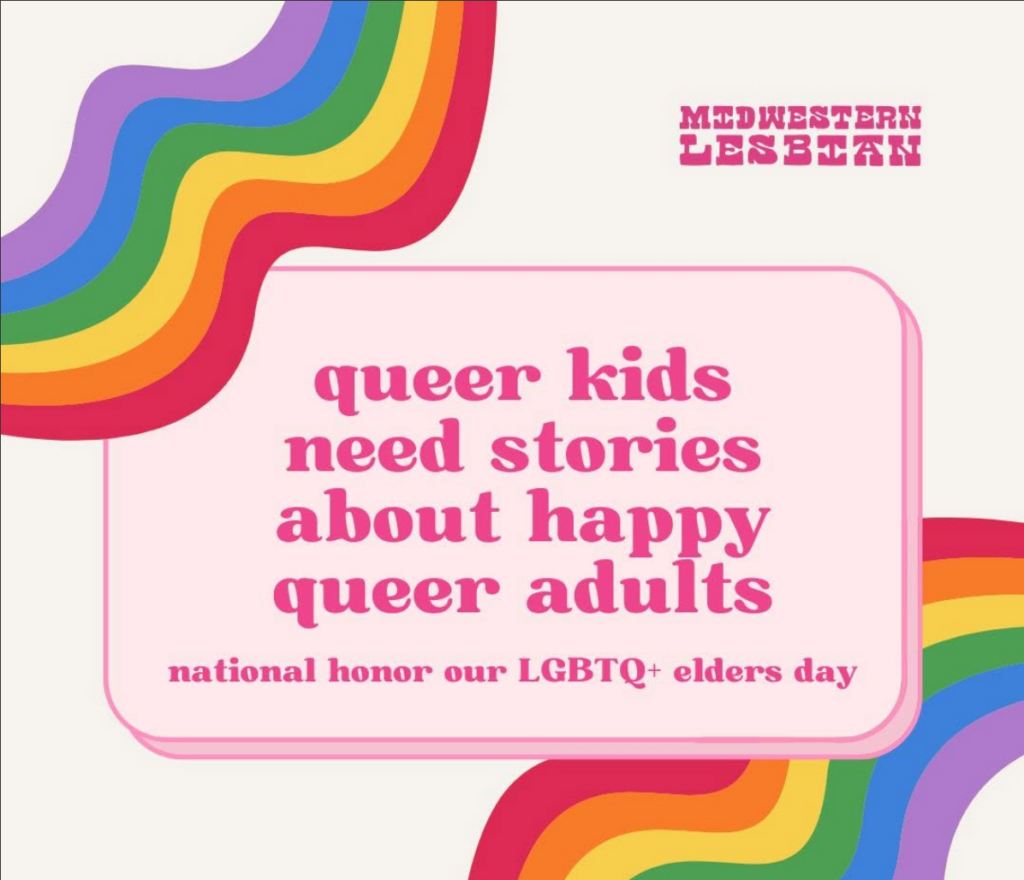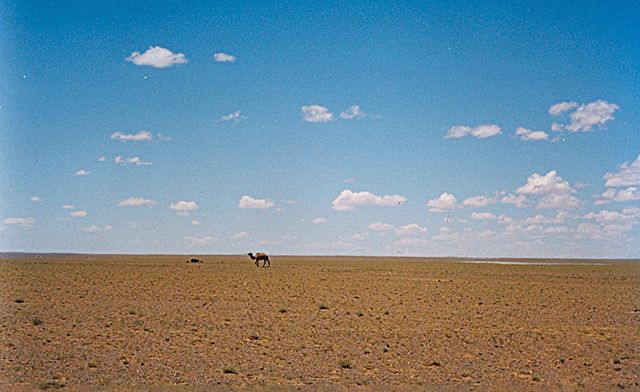I’ve always been prone to inertia, for better and worse—often worse, especially this past month. This afternoon, I lay down, prone, on my bedroom floor with the intent of stretching my back … and then I stayed there. After some amount of time, I broke through enough to prop myself up on my elbows and—what else—scroll social media in hopes of finding a bit of, well, hope.
I’ve come across this one before—especially this past month: Queer kids need stories about happy queer adults.
(I should note here that I am incredibly lucky to have come from an extended family that included queer adults being happy and embraced, and of all the things I questioned, the love and acceptance of my parents was never one of them.)
By high school, I knew I wasn’t straight. I’d claimed a few middle school crushes in the form of naming boys I liked hanging out with, tried to stoke that into something that felt special, but it didn’t happen. Okay, I figured; if I don’t like boys any better than girls, I must be bi—duh. I joined GLOW—Gay-Lesbian-Or-Whatever—after school. (The only GLOW initiative I recall was a post-Katrina clothing drive. “But,” more than one person said, “that was months ago. Isn’t it over?”) I had pins on my backpack, “Marriage=<3+<3” and “These colors don’t run … the world” and that sort of thing. My best friend and I skipped school on election day to volunteer at the polls. I fooled around with a boy at writer camp and a girl in the back of a car, and I reassured myself that I was only 14/15/16—it would be statistically ridiculous to think I’d meet the love of my life so early. I was too busy worrying about bird flu anyway.
(“It feels like you’re not attracted to me,” a partner would later comment, and I guess they were on to something.)
I was 17, I think, when I started to accept that well, maybe there was more going on. My writing should have been a red flag; after a number of indulgent friends read drafts and commented on the seeming setup of romantic tension that never paid off, I found myself needing more clarification than a hormone-addled adolescent ought to.
“But,” I said more than once, “aren’t they friends?”
Eyebrows were raised; acknowledgments were made that I was the writer and they weren’t going to tell me how to write my story. It was just feedback, take it or leave it.
I left a note in my best friend’s locker asking what she thought, and she passed me a doodle of the “friends” in question.
“Wanna bone?” one (though I don’t remember which) asked.
“Let’s go,” the other replied.
It didn’t really feel like an orientation, or an identity, or, if I’m being honest, anything except a shortcoming. A supposedly beautiful, life-changing, mind-blowing part of the human experience was off-limits to me. Instead, I romanticized settling down in a small cottage on a rocky coast, just me and a big grey dog and a pair of horses and a vintage typewriter for when I wanted to feel fancy. If I was destined for spinsterhood, I would spin the hell out of it.
I accustomed myself to the idea that I would never be a significant other—a friend, sure, and maybe even a good friend, but my transition into adulthood had been shaped by watching my closest friends partner off and become less close. I understood the eventual progression of everyone around me as they moved onward and outward into Normal Grownup Relationships.
(I know this is sounding like the story of a queer adult being unhappy; just bear with me.)
I made a friend at work; we’ll call them Alex. After a relationship ended, Alex moved in with me, because that’s how I got most of my roommates—they were in a bad place without a better option. That’s the same reason Alex’s younger brother came to stay with us, first for the summer to get a break from their alcoholic mother, and then for longer. I didn’t consider myself the parental type, but I also don’t have a word for what I became: an adult who cared deeply for him and enjoyed the person he was becoming and felt genuinely privileged to be a part of that becoming.
Alex started dating a woman who lived several states away; let’s call her Linda. I thought I would be prepared for the inevitable, that when they moved in together, those several states away, I would be sad in the usual way. Instead it felt like I was losing a family I had never considered I might have.
(I know, I know. I promise, we’re almost to the good part.)
Here’s the thing: Linda never wanted kids. Alex’s brother was non-negotiable. Not wanting kids, or else already having one, is often still viewed by society at large as a deficit, a shortcoming, or whatever—a burden for a partner to bear or a reason to end the relationship. This could be a story of three queer adults realizing that what they bring isn’t, by some measure, “enough,” and going through the stages of grief that become so familiar it’s almost a habit.
Instead, last year, we pooled our resources and bought a nice house in a nice neighborhood in the queer-friendly state of New Jersey.
Our wifi network is called “NotAThrouple,” because that’s the obvious non-traditional model for people to latch onto, but it’s not accurate. We fill different roles in the home, and the same way it’s overly simplistic to ask a gay couple, “So which of you is the guy in the relationship?” it’s not easy to give names to who we are to each other. Alex and Linda are each other’s “significant other” in the most traditional sense—but I’m also significant, in a way I never thought I would be, not as an afterthought or a third wheel or a tag-along but as a weird-shaped piece of a weird-shaped family.
I won’t be so bold as to say, unequivocally, that it gets better, because sometimes it doesn’t. Some queer adults aren’t happy. Some adults are queer kids who got cut off or beaten down or smothered. Some queer kids never make it to adulthood.
But sometimes—even when a lot of things really, really suck—we’re happy.



 Edith Wharton, late in her writing career, wrote:
Edith Wharton, late in her writing career, wrote: